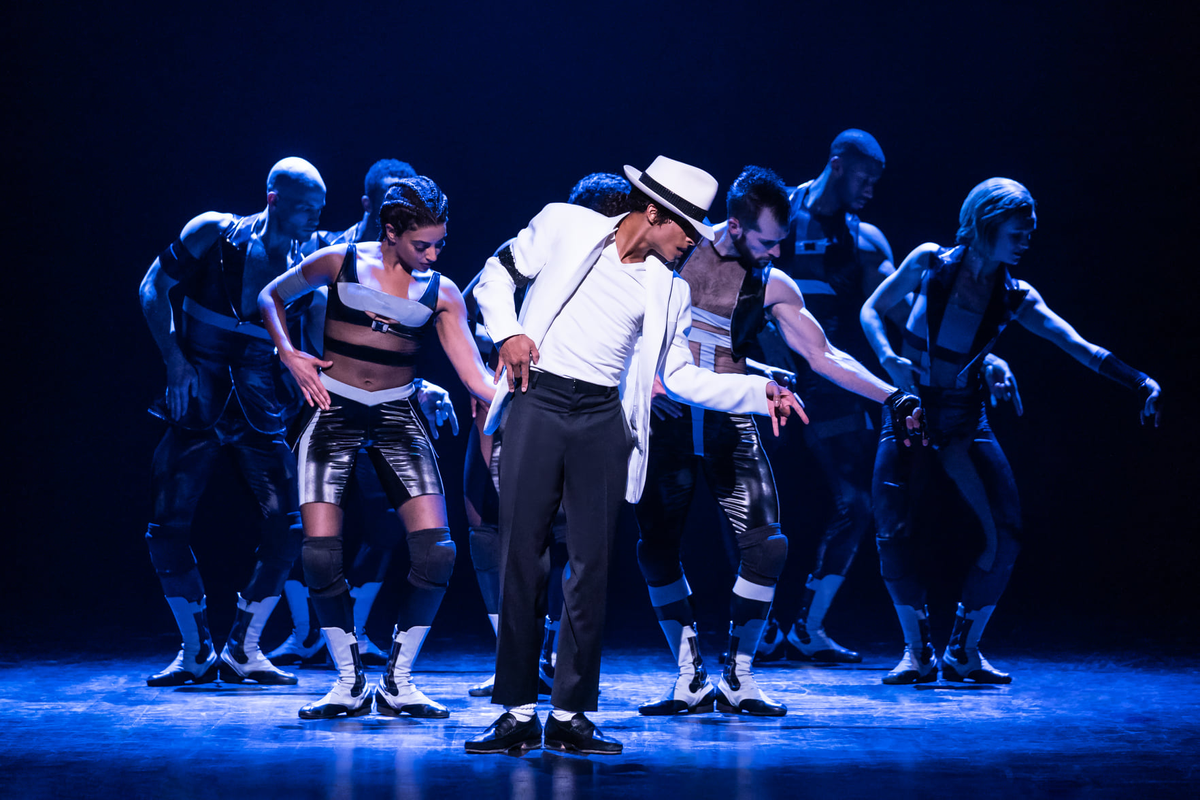OPINION - Is it morally wrong to go and see the Michael Jackson musical? I think so

I still love Philip Larkin, have no qualms over David Bowie and enjoy the music of Kanye West. I don’t like cancel culture and understand the need to separate the art from the artist. So why do I feel so uncomfortable at the thought of the biggest opening in the West End this year?
MJ The Musical is moonwalking into Soho. Created by two-time Pulitzer-winning playwright Lynn Nottage and directed by the acclaimed Royal Ballet choreographer Christopher Wheeldon, this Michael Jackson musical has been a smash hit in the US, making £137 million at the box office with 1,204,693 rapturous fans in attendance.
Conveniently set in 1992, the year before the King of Pop was first publicly accused of abuse, the show focuses on Jackson as he prepares for his Dangerous world tour. Despite its success, the fact that the show doesn’t mention any of the allegations against him understandably made US critics uneasy. “No one’s looking at the Man in the Mirror,” spoke the New York Times, “Very smooth, somewhat criminal,” declared the New York Stage Review.
Jackson’s achievements are unparalleled. He is one of the most significant figures of the 20th century, the black Sinatra, Elvis and Madonna rolled into one. His achievements include 15 Grammys, six Brits, a Golden Globe and 39 Guinness World Records including “most successful entertainer of all time”. Iconic hits like Thriller, Billie Jean, Beat It and Bad established him as a musical genius and truly innovative performer.
Robson alleges he was just seven when he was raped by Jackson, Safechuck says the abuse started at 10
He is hugely historically significant for black Americans and credited for breaking through countless racial barriers, including being the first black artist to have a video in regular rotation on MTV and setting and breaking sales records throughout his career, not to mention his considerable philanthropic endeavours. His legacy matters.
But to say Jackson is problematic would be an understatement.
In 1993, Jackson was accused of molesting 13-year old-Jordan Chandler in a case that was settled out of court for $23 million. Later, criminal charges were brought after 12-year-old former cancer patient Gavin Arviso also told police he had been abused.
Dan Reed’s 2019 harrowing documentary Leaving Neverland showed Wade Robson and James Safechuck describe in graphic detail how they were molested as young children (Robson alleges he was just seven when he was raped by Jackson, Safechuck says the abuse started at 10). Their testimony — which has been categorically denied by the Jackson estate — is overpoweringly convincing.
Their accounts serve as a masterclass on the grooming process and the psychology of the predator — Safechuck’s mother recounts that as time went on, her room got farther and farther from the one her son and Jackson shared. Safechuck loved jewellery, and Jackson allegedly made him perform sex acts to earn it. Both say they were warned that if they ever told anyone what was really going on they would go to prison for the rest of their lives
As with the participants in the documentary Surviving R Kelly, diehard fans claim they are lying in the pursuit of compensation payouts which is complicated by the fact both testified on Jackson’s behalf in 2005 when the star was tried for child sexual abuse. They argue it took many years to be able to speak about what happened; one of the great takeaways of Leaving Neverland, Surviving R. Kelly and other similar works is the dismantling of assumptions about the “perfect victim”.
But even in the mainstream it seems that Jackson is too big to cancel. Next year sees the release of Michael, a biopic made by Oscar-winning producer Graham King alongside the co-executor’s of Jackson’s estate. Isn’t it extraordinary that in a world in which Roald Dahl needs a trigger warning, audiences are lapping up films that glorify a man who allegedly raped very young children?
It’s a sad fact of life that criminal allegations have historically been treated very differently when the accused is a very famous and much-loved man. Miles Davis allegedly assaulted his wives, the late rapper XXXTentacion allegedly battered his ex-girlfriend when pregnant... When you listen to someone’s music, you’re not endorsing their morals, but in our new kinder, woker society, should there be red lines?
Of course, Jackson was also a victim. It isn’t hard to work out the psychological hinterland that inspired Neverland. He suffered vicious abuse from his father, who bullied all of his children horribly but reserved a particularly cruel streak of psychological warfare for his youngest son, Michael. A kind interpretation of the sinister Neverland is of course that Jackson was simply trying to recover a lost childhood that was stolen from him.
Criminal allegations have historically been treated very differently when the accused is a very famous and much-loved man
Another line of argument might be that as a society we’re slaves to a sick celebrity culture where we make the victors ill. Look at the highly-anticipated Amy Winehouse biopic, which gives us another opportunity to pick at the skeleton of yet another damaged individual. It is unarguable that celebrity itself is toxic for the carrier, and just as poisonous for anyone in their orbit.
Jackson “truthers” have a faith-based relationship with his legacy. Of course, it’s much nicer to live in a world where he was the genius, the trailblazer, the philanthropist and to enjoy his music with carefree abandon.
But even if you don’t believe Jackson’s accusers, and are not concerned by the police investigations and eye-watering payouts to halt legal proceedings, and have no problem that Jackson openly admitted he slept in the same room as young boys, the message you’re sending is that if a paedophile is rich and powerful enough society will still endorse him. Are you comfortable with that?
Anna van Praagh is the Evening Standard’s chief content officer


